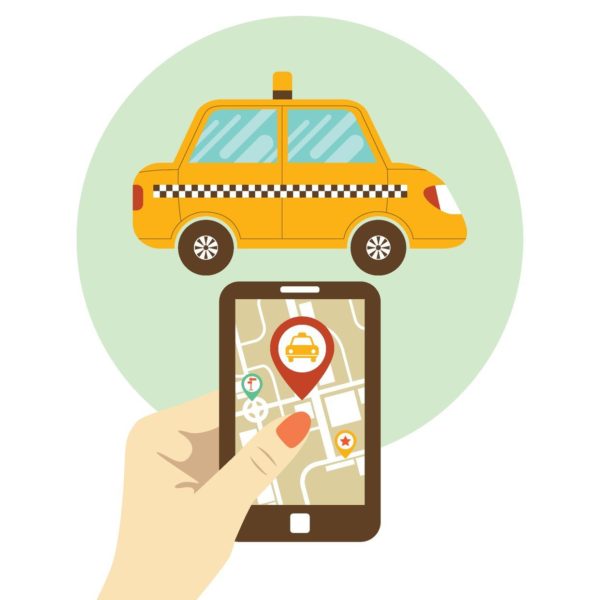
Posted on August 21st, 2017
Introduction
Over the last few years there have been so many new technology based companies that have been ‘lifestyle disruptive’ making our daily routines more convenient and revolutionizing the way business is done in certain fields.
One of the juggernauts in this category of the ‘Sharing Economy’ and a company that seems to have exploded into the national consciousness over the last couple of years is UBER.
Personally I am a freqent user of UBER (and LYFT) and with working and living in Los Angeles, you need to take advantage of every possible opportunity to reducing your need to drive in heavy traffic or worry about non existent parking options.
UBER has become incredibly successful in a very short amount of time. An American International transportation network company with headquarters in San Francisco CA, it has a near $70 billion valuation!
Most of us understand the UBER service because it’s simple and intuitive. All we have to do is to use their app on our smart phone which allows to quickly find the closest driver that will take us to our destination.
This service is so popular mainly because its so convenient. The money is automatically taken out of your account on file and you don’t have to worry about carrying cash. You can see where the driver is at all times right on your phone and maybe best of all someone else is dealing with the traffic while we make a more productive use of our time getting some reading or work done.
Another reason we like this service so much, it’s because it’s cheaper than using taxi services.
The ubiquitous use of the service has also reduced the amount of drunk drivers.
OK before you think I am some kind of shill for Uber lets get to the other side of things. While Uber and services like it have been great for us the consumer, it has frankly pissed some people off as well.
First there is the obvious the taxi companies and other traditional transportation services that are losing business to them.
But a much bigger threat to the Uber (and the other “on-demand” work companies) business model is the backlash from workers and politicians with their Labor practices.
Uber’s Achilles Heel
So what can stop this juggernaut called UBER when it seems to have so much going for it?
Well even UBER may have met its match with the state of California Labor Commission and its restrictive labor laws.
While the debate between business, workers and politicians rages on The California Labor Commission already gave its ruling in 2015 that UBER drivers are being misclassified as independent contractors, and that in fact all the drivers should be classified as employees instead.
The difference between the two classifications for employers is huge!
For employees we need to pay workers in accordance with our states wage and hour laws, reimburse them for some work expenses, withhold and pay taxes, and deal with overtime hours. Employees are also eligible for unemployment and workers compensation benefits two things we do not have to worry about with independent contractors.
So of course with all these obvious cost savings, many employers love the idea of classifying their workers as independent contractors instead of employees. The problem is there is a very strict set of criteria allowing for them to be put in the independent contractor classification.
And of course California is one of the strictest and most employee favored states in our nation.
It is estimated that Ubers operating costs would increase by at least 30% if all the drivers were suddenly treated as employees.
Uber Misclassification
This misclassfication issue is something Iv’e seen over and over again and a huge potential liability for most California employers.
The question is whether the person working for you (in UBER’s case the drivers) can be considered an employee or an independent contractor.
The state of California has made it so that its almost impossible to truly classify someone as an Independent Contractor under all their definitions. So what ends up happening is usually an unscrupulous lawyer on the employee side will contact the worker and convince them they have been ‘misclassified’. The employee convinced they have been wronged and their attorneys who are trying to make a quick buck, then go after you the employer.
And once again who gets screwed? You guessed it. Me, you (and now companies like UBER), all the California employers, who have all the burden of proof put on us to prove the employees classification.
The Outlook for Uber and Labor Law
Make no mistake about it. If this ruling against UBER succeeds in court, it will be a serious financial blow to the company and the consequences will likely expose more vulnerabilities in its fight with the taxi unions over the future of the paid riding services business model.
In this particular case, UBERs main argument is that they don’t provide significant administrative support, but rather it is a smartphone app used as a “middleman” by drivers and passengers for private transactions.
The California Labor Commissioner however completely disagreed and ruled that UBER does manage large parts of the operations and its drivers should be classified as employees not independent contractors.
Now the major reason that UBER is so attractive to drivers is that they are independent. They “clock in” and “clock out” whenever they want. This flexibility is of course extremely desirable to them. But does the flexibility outweigh the employer paid benefits? For many workers the answer is no especially when you consider how many employer based benefits they are missing out on in a state like California.
Many people argue these “new economy” services like Uber are not meant to replace a full time income. Like Airbnb they are best used to supplement your income.
What we know for sure that these disruptive companies are here to stay. They not only have changed many of our daily habits but will continue to redefine how we live, play and work and the relationships between employees and employers.
The state of California has to allow for flexibility and learn to adjust regulations and laws to meet the new demands of the sharing economy.
If they leave things as they are it will not be equipped to handle the changes and it will be bad for both employers and employees.

Book a FREE 15 Minute Consultation
with me today so I can listen to your story and tell you exactly what you need to do to get rid of your employee problems.
Download My Free Ebook: ‘6 Tips To Protect Your California Business From an Employee Lawsuit’
